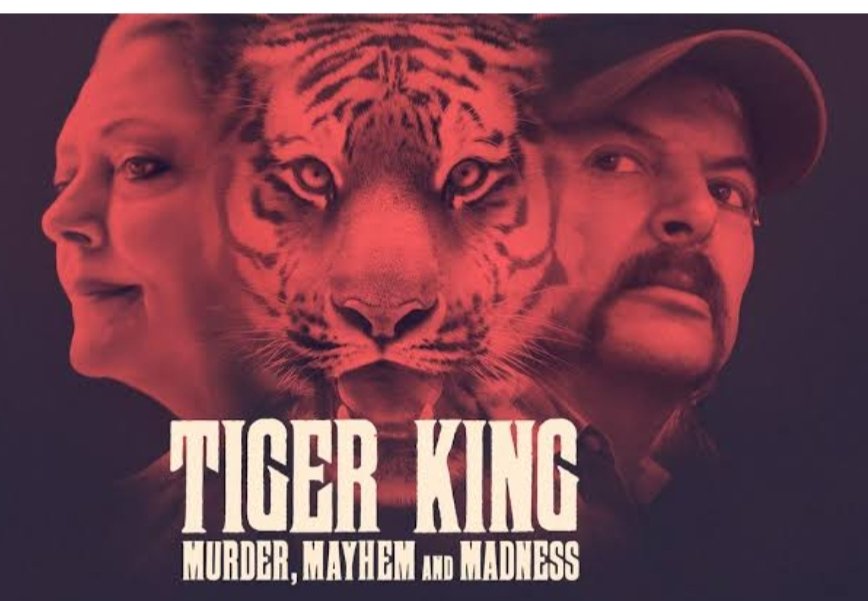In the realm of true crime documentaries, few have captured the public’s imagination quite like Netflix’s “Tiger King: Murder, Mayhem, and Madness.” Yet, beyond the captivating tale of Joe Exotic and his exotic animal empire lies a legal saga that has sparked heated debate and courtroom drama. The copyright case against Netflix over “Tiger King” has raised fundamental questions about intellectual property rights, fair use, and the boundaries of creative expression. This article delves into the intricacies of the case, exploring the legal arguments, rival contentions, and ultimately, the verdict that has reverberated throughout the entertainment industry.
Case Background
The core of the legal battle over “Tiger King” revolved around allegations of copyright infringement against Netflix and the documentary producers in Spring 2020. Joe Exotic, the enigmatic zookeeper whose exploits form the centrepiece of the narrative, alleged that his likeness, footage, and intellectual property were unlawfully appropriated without his consent. Exotic contended that Netflix and the producers exploited his persona and copyrighted materials for commercial gain, infringing upon his exclusive rights as the creator.
The case unfolded against the backdrop of Exotic’s tumultuous life, marked by his eccentric personality, involvement in the exotic animal trade, and a bitter feud with his rival, Carole Baskin which prompts questions about the ethical obligations of documentarians when depicting real individuals and events. As the legal proceedings progressed, the dispute evolved into a high-stakes confrontation between the individual rights of the subjects portrayed in the documentary and the creative liberties of the filmmakers.
Submissions/Rival Contentions
In the courtroom, both parties presented compelling arguments. Joe Exotic and his legal team asserted his ownership of the copyrighted materials in “Tiger King,” including zoo footage and personal archives. They claimed Netflix and the producers violated Exotic’s exclusive rights under The United States Copyright Act of 1976 by exploiting his identity and intellectual property without consent.
In contrast, Netflix mounted a vigorous defence, citing fair use to justify their use of Exotic’s materials. They argued “Tiger King” offered critical commentary on Exotic’s life and the exotic animal industry, constituting transformative work. Netflix maintained their use of copyrighted content was protected by the First Amendment, which safeguards freedom of speech and artistic expression, serving the public interest by exposing realities of the exotic animal trade.
Judgement
After careful consideration, the United States Court of Appeals for the Tenth Circuit delivered its verdict on March 27, 2024, concluding the legal dispute surrounding “Tiger King.” In its ruling, the court meticulously balanced the interests of the involved parties and applied established copyright law principles.
The court acknowledged Joe Exotic’s ownership of the copyrighted materials, notably including footage from his zoo and personal life, featured in the documentary. However, it ultimately ruled in favour of Netflix, determining their utilization of the materials fell within the bounds of fair use. Emphasizing the transformative nature of “Tiger King,” the court highlighted its roles in journalism, education, and societal commentary.
Furthermore, the court acknowledged the documentary’s significant cultural impact and its contribution to public discourse on pertinent issues such as animal welfare, exploitation, and the criminal justice system. It concluded that Netflix’s use of copyrighted content not only complied with the law but also served the public interest by fostering awareness and stimulating dialogue on crucial social matters.
Implications and Precedent
The recent U.S. appeals court decision on the “Tiger King” documentary highlights fair use challenges, stressing careful analysis of factors like purpose and impact. This underscores the need for clearer fair use guidelines to prevent stifling creativity. The judgment sets a precedent by affirming the transformative nature of documentaries and freedom of expression, impacting future cases. It reflects the evolving copyright landscape, guiding creators in navigating intellectual property rights, particularly in documentary filmmaking. Moreover, the ruling underscores the ever-evolving nature of copyright law in the digital age, influencing the balance between artistic expression, commercial interests, and public interest. The “Tiger King” case thus serves as a vital lesson and precedent for navigating the complex landscape of intellectual property rights in the realm of documentary storytelling.
Conclusion
While the Tiger King case originated in the United States, its legal principles and implications resonate globally, including in India. In an increasingly interconnected world, Indian content creators and platforms must navigate similar legal challenges surrounding intellectual property rights, fair use, and the depiction of real-life individuals. The case underscores the need for robust legal frameworks and ethical practices in the entertainment industry. Documentarians must navigate the legal landscape meticulously, adhering strictly to copyright laws and ethical standards. It emphasizes the importance of securing permissions, conducting thorough research, and portraying individuals responsibly to avoid legal issues and uphold the integrity of their work.
In essence, the Tiger King case represents a complex nexus of law, entertainment, and ethics, offering insights into intellectual property rights in the digital age. Its impact extends beyond the US, resonating globally, including in India, where similar content creation issues arise. Ultimately, its resolution will shape copyright law and fair use doctrine, influencing the global entertainment landscape.
Authors: Aishee Choudhury & Malabika Boruah

